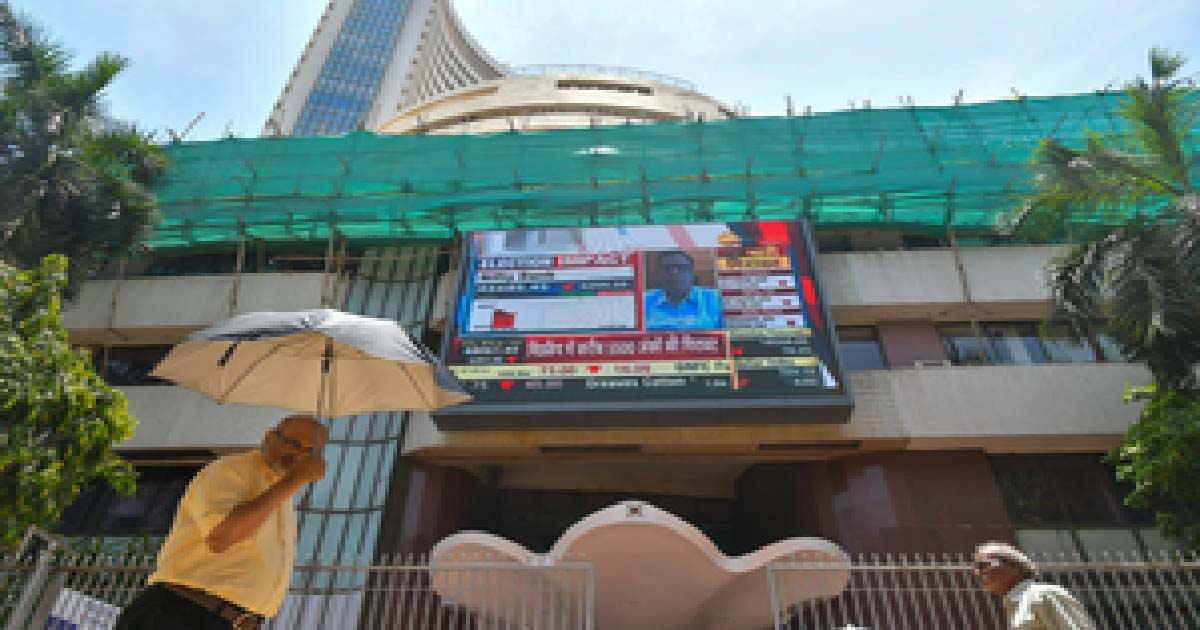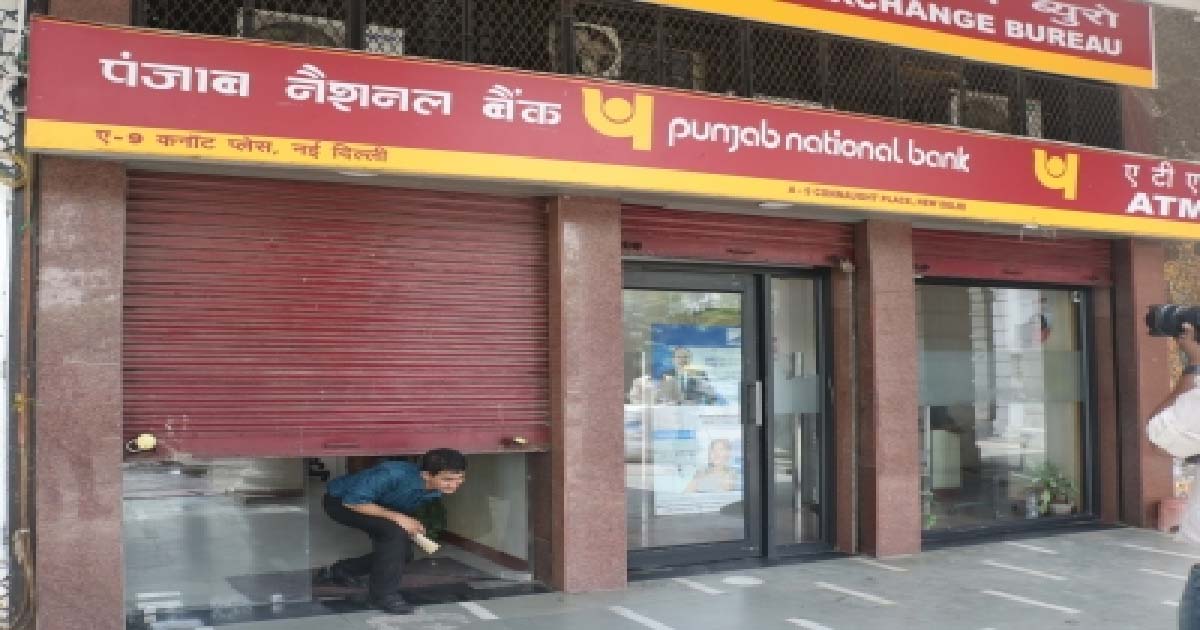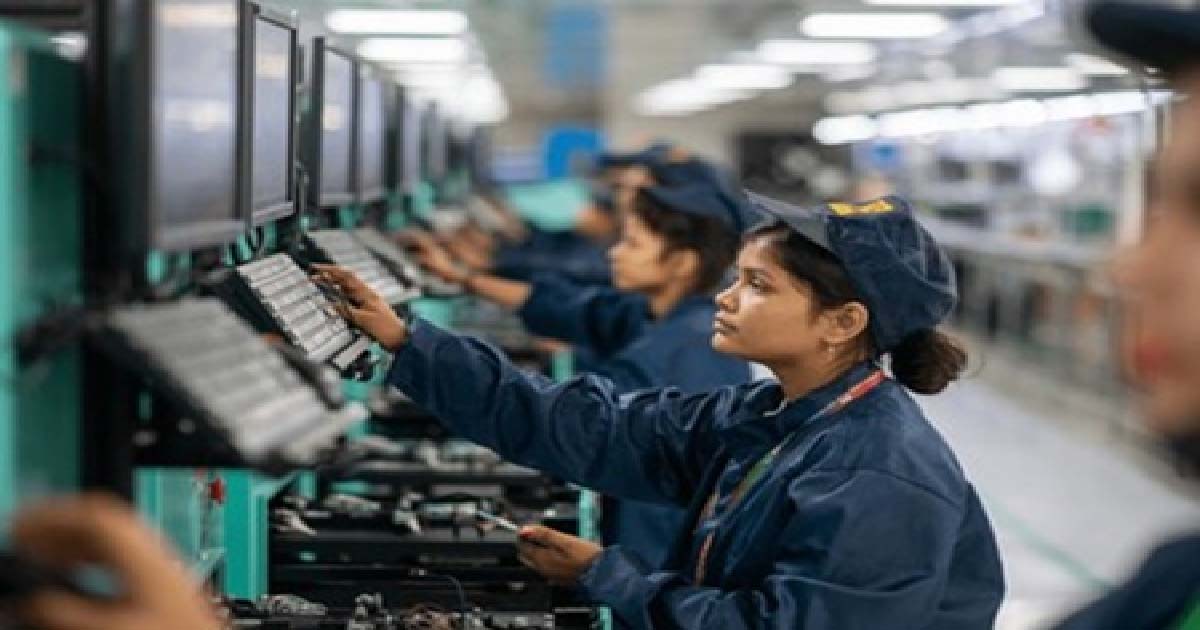Business
If softening of inflation continues further, then it would eventually lead Fed to taper its aggression: Sneha Poddar

Sneha Poddar, AVP Research, Broking & Distribution, Motilal Oswal Financial Services, said if the softening of inflation continues further, then it would eventually lead to the US Federal Reserve to taper its aggression. The Reserve Bank of India (RBI) is more likely to follow the US Fed and thus would not taper its tone till its is adopted by the latter.
Here are excerpts from the interview:
Q. Do you think after US CPI inflation print which came below estimates will allow Fed to go slow on rate hike, and RBI will follow the same?
A: The US CPI inflation data for the month of July came in at 8.5 per cent, down from 9.1 per cent in June and slightly below expectation of 8.7 per cent. However the Fed officials have responded to softening inflation data by saying it doesn’t change their stance towards higher interest rates, as the inflation still remains above the unacceptable levels. Since this is just first sign of inflation peaking out, and is too early to rule out subsequent high inflation data, uncertainty will loom over when the US Fed would slow down on its aggressive rate hikes. If the softening of inflation continues further, then it would eventually lead Fed to taper its aggression. The RBI is more likely to follow US Fed and thus would not taper its tone till its is adopted by US Fed.
Q. 5.40 per cent repo rate is already above pre-pandemic level, but still the RBI maintains “withdrawal of accomodation” stance. Do you think the neutral level of the repo rate is at or above 6 per cent?
A: The RBI has cumulatively hiked the policy repo rate by 140bp to 5.4 per cent in FY23 till date. It reiterated its continued focus on “withdrawal of accommodation” to contain inflation while supporting growth. However, it kept its inflation/growth forecasts unchanged at 6.7 per cent/7.2 per cent YoY, respectively, for FY23. This seems very confusing as how can the rate hikes help contain inflation without hurting growth? Further, the MPC did not sound dovish at all. There was neither a change in stance nor a relief in the RBI Governor’s statement disclaiming a possible pause in rate hikes. Thus we believe that the terminal rate in this hike cycle might be at 5.75-6.0 per cent
Q. In the current market conditions, which sectors are likely to perform well from an investor returns point-of-view?
A: We believe BFSI can do well in rising interest rate scenario. On the other hand with good monsoon, upcoming festive season and softening of commodity prices, the demand both urban and rural are expected to revive and pick up and thus we are positive on Consumer, Auto and Retail. With the opening up of economy and the structural shift being witnessed in favour of the industry post Covid, QSR remains in a sweet spot. While uncertainty around quantum of interest rate hikes is likely to impact the performance of real estate stocks in the near term, longer-term thesis on revival of housing cycle remains intact. There is imminent opportunity in the domestic Hospitality industry and the expected upcycle bodes well for the sector. We are selectively looking at IT sector as valuations have become attractive for accumulation from long term perspective.
Q. Where you see levels on benchmark indices going forward considering the FI inflows in the domestic equities?
A: Strong momentum in the market has helped Nifty rally by more than 2500 points from June lows, and thus, has wiped out the entire decline for the calendar year till date and turned positive. Strong macro data, FII turning positive, steady earnings and healthy progress in monsoon have been some of the key factors supporting the market. FIIs (including primary market) turned positive for the month of July after nine months of continuous outflows and has been continuous buyer throughout the month of August so far. With the softening of commodity prices, even inflation seems to be peaking out and festive season is about to begin which should support demand and thus corporate earnings. Thus the overall trend in the market seems to be positive, however bouts of volatility can’t be ruled out as uncertainty over rate hike quantum and China-Taiwan tussle continues. Further, with this recent rally, Nifty now trades at ~20x FY23E, above its 10-year average, thus offering limited upside in the near term. Going forward, it could be a tug of war between domestic and global factors which could determine the market direction.
Business
Sensex, Nifty trade flat amid mixed global cues

Mumbai, Dec 29: Indian benchmark indices traded flat with a mild positive bias early on Monday, tracking mixed global cues and subdued year-end participation.
As of 9.30 am, Sensex moved up 40 points, or 0.04 per cent to 85,081 and Nifty gained 14 points, or 0.05 per cent to 26,057.
Main broad-cap indices performed in line with benchmark indices, with the Nifty Midcap 100 advanced 0.14 per cent, while the Nifty Smallcap 100 added 0.18 per cent.
Tech Mahindra, Tata Steel and NTPC were among the major gainers in the Nifty Pack, while losers included Bajaj Finserv, Axis Bank, Bajaj Finance and Tata Consumer.
Among sectoral gainers, the Nifty Metal index was the top performer, rising 1.11 per cent, followed by Nifty Auto and Nifty Realty, which gained 0.26 per cent and 0.25 per cent, respectively.
According to analysts, immediate support is placed at 25,850–25,900 zone, while 26,150–26,200 remains a crucial resistance band. Stable crude prices and a relatively steady rupee continue to offer underlying support, preventing sharp downside.
They further said that underperformance of India compared to most developed and emerging markets in 2025 is set to change in 2026 as Indian macros are in the ‘Goldilocks’ zone, with robust economic growth and recovery in earnings from Q3 FY26.
However, these factors are not enough to spark a rally soon, market watchers said. The market needs a US-India trade deal with positive surprises for India to rebound. A consolidation phase is likely in the near term in the absence of such surprises, they added.
Asia-Pacific markets traded mixed in the morning session, as investors kicked off the final trading week of the year.
In Asian markets, China’s Shanghai index advanced 0.31 per cent, and Shenzhen edged up 0.03 per cent, Japan’s Nikkei lost 0.31 per cent, while Hong Kong’s Hang Seng Index gained 0.39 per cent. South Korea’s Kospi added 1.52 per cent.
The US markets ended in the red zone on the last trading day, as Nasdaq lost 0.09 per cent, the S&P 500 eased 0.03 per cent, and the Dow moved down 0.04 per cent.
On December 26, foreign institutional investors (FIIs) sold equities worth Rs 317 crore, while domestic institutional investors (DIIs) were net buyers of equities worth Rs 1,772 crore.
Business
PNB declares Rs 2,434 crore alleged loan fraud against former promoters of Srei firms

New Delhi, Dec 27: Punjab National Bank (PNB) has declared a Rs 2,434 crore alleged loan fraud by the former promoters of Srei Equipment Finance and Srei Infrastructure Finance.
In a late evening exchange filing, the state-run PNB said that “Pursuant to the applicable provisions of SEBI (LODFR) Regulations, 2015 and the Bank’s Policy for determining materiality of events/information required to be reported to the Stock Exchanges, it is hereby informed that the bank has reported borrowal fraud to RBI against the erstwhile promoters of Srei Equipment Finance and Srei Infrastructure Finance”.
PNB said that of the total fraudulent borrowings, Rs 1,240.94 crore is related to Srei Equipment Finance and the remaining Rs 1,193.06 crore is related to Srei Infrastructure Finance.
The public sector lender also said it has 100 per cent provisions for these loans. The bank said the declaration of these two accounts as frauds is based on a forensic audit, which pointed to irregularities such as loans to connected parties and potential evergreening of loans.
However, Srei group has challenged the forensic audit report as the basis for the fraud classification, noting the matter is subjudice.
Other banks such as Punjab & Sind Bank, Bank of Baroda, and Union Bank of India have also earlier declared a loan fraud in connection with Srei companies.
The Srei group has been undergoing an insolvency resolution process since 2021, and the National Company Law Tribunal has approved a resolution plan submitted by the National Asset Reconstruction Company in 2023. The Srei group was sent to the NCLT by the Reserve Bank in October 2021 after it had found governance issues and defaults and the regulator superseded the boards of Srei Infrastructure Finance and Srei Equipment Finance.
In February 2023, NARCL emerged as the successful bidder for SIFL and SEFL which together owed Rs 32,750 crore to lenders. NARCL won the bid in February 2023, got the NCLT approval in August 2023, and finalised the acquisition by January 2024.
Business
India 2nd largest mobile manufacturing country in the world: Minister

New Delhi, Dec 27: India has ramped up electronics production six-fold and is the second largest mobile manufacturing country in the world, Union Minister of Electronics and Information Technology Ashwini Vaishnaw said on Saturday.
In multiple posts on social media platform X, Vaishnaw said that the country has increased electronic exports eightfold over the past 11 years, mainly driven by policy support from the Production Linked Incentive Scheme.
The PLI scheme for Large Scale Electronics Manufacturing has attracted over Rs 13,475 crore in investment and helped achieve production of about Rs 9.8 lakh crore in the electronics sector, driving manufacturing, jobs, and exports, he said.
Vaishnaw highlighted that “over 1.3 lakh jobs were created in the last five years and that electronics is now India’s third‑largest export category, climbing from seventh place”.
He said the country was initially focusing on finished products, but the Electronics Component Manufacturing Scheme supported a shift to “building capacity for modules, components, sub-modules, raw materials, and the machines that make them.”
The Electronics Component Manufacturing Scheme has 249 applications representing Rs 1.15 lakh crore in investment, Rs 10.34 lakh crore in production, and creating 1.42 lakh jobs, the post said, adding it is the highest-ever investment commitment in India’s electronics sector, indicating industry confidence.
Vaishnaw also noted progress in the semiconductor sector, saying ten units have been approved, with three already in pilot or early production. The minister said that “fabs and ATMPs from India will soon supply chips to phone and electronics manufacturers”.
“Electronics manufacturing created 25 lakh jobs in the last decade. This is the real economic growth at the grassroots level,” the minister said.
“As we scale semiconductors and component manufacturing, job creation will accelerate. From finished products to components, production is growing. Exports are rising. Global players are confident. Indian companies are competitive. Jobs are being created. This is ‘Make in India’ impact story!” he noted.
-

 Crime3 years ago
Crime3 years agoClass 10 student jumps to death in Jaipur
-

 Maharashtra1 year ago
Maharashtra1 year agoMumbai Local Train Update: Central Railway’s New Timetable Comes Into Effect; Check Full List Of Revised Timings & Stations
-

 Maharashtra1 year ago
Maharashtra1 year agoMumbai To Go Toll-Free Tonight! Maharashtra Govt Announces Complete Toll Waiver For Light Motor Vehicles At All 5 Entry Points Of City
-

 Maharashtra1 year ago
Maharashtra1 year agoFalse photo of Imtiaz Jaleel’s rally, exposing the fooling conspiracy
-

 National News1 year ago
National News1 year agoMinistry of Railways rolls out Special Drive 4.0 with focus on digitisation, cleanliness, inclusiveness and grievance redressal
-

 Maharashtra1 year ago
Maharashtra1 year agoMaharashtra Elections 2024: Mumbai Metro & BEST Services Extended Till Midnight On Voting Day
-

 National News1 year ago
National News1 year agoJ&K: 4 Jawans Killed, 28 Injured After Bus Carrying BSF Personnel For Poll Duty Falls Into Gorge In Budgam; Terrifying Visuals Surface
-

 Crime1 year ago
Crime1 year agoBaba Siddique Murder: Mumbai Police Unable To Get Lawrence Bishnoi Custody Due To Home Ministry Order, Says Report












